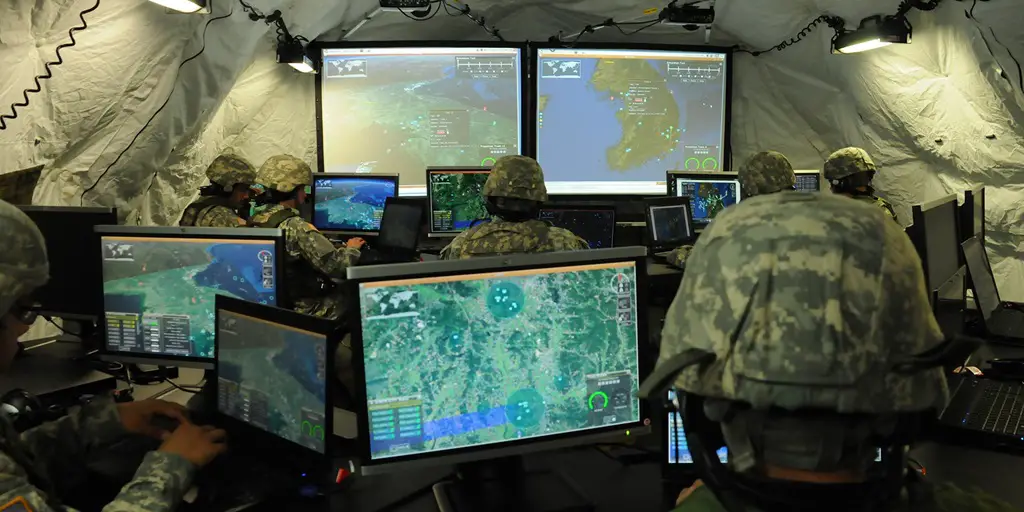Government of Poland of an Integrated Air and Missile Defense (IAMD) Battle Command System (IBCS) and related equipment for an estimated cost of $4.0 billion. The Government of Poland has requested to buy phase two of a two-phase program for an Integrated Air and Missile Defense (IAMD) Battle Command System (IBCS) enabled PATRIOT Configuration-3+ with modernized sensors and components; the sale includes ninety-three (93) Integrated Air and Missile Defense (IAMD) Battle Command System (IBCS) Engagement Operation Centers (EOCs) and one hundred seventy-five (175) IBCS Integrated Fire Control Network (IFCN) relays. Also included are network encryptors; IBCS software development and component integration; U.S. Government and contractor technical support; System Integration Lab (SIL) infrastructure; SIL test tools and equipment; U.S. Government and contractor technical support for SIL; flight test infrastructure and equipment; flight test targets; flight test range costs and fees; U.S. Government and Original Equipment Manufacturer (OEM) flight test services and support; and other related elements of logistics and program support.
The Integrated Air and Missile Defense (IAMD) Battle Command System (IBCS) is a plug and fight network intended to let any defensive sensor (such as a radar) feed its data to any available weapon system (colloquially, “connect any sensor to any shooter”). The system is designed to shoot down short, medium, and intermediate range ballistic missiles in their terminal phase by intercepting with a hit-to-kill approach. IBCS has been developed since 2004, with the aim to replace Raytheon’s Patriot missile (SAM) engagement control station (ECS), along with seven other forms of ABM defense command systems. The IBCS program is part of the Army’s Integrated Air and Missile Defense (IAMD) effort. IBCS aims to create an integrated network of air defense sensors, such as AN/MPQ-64 Sentinel and AN/TPS-80 G/ATOR, AN/MPQ-53, AN/MPQ-65A and GhostEye (LTAMDS) in Patriot missile system, GhostEye MR in NASAMS, AN/TPY-2 in Terminal High Altitude Area Defense (THAAD) and Ground-Based Midcourse Defense (GMD), AN/SPY-1 and AN/SPY-6 in Aegis BMD, and AN/APG-81 in Lockeed Martin F-35 Lightning II, allowing them to interoperate with IBCS engagement control stations.
This contract enables ongoing support for engineering, logistics, integration, test and evaluation, training and program management as IBCS progresses through the design and development phase in preparation for fielding. This work supports an upcoming IBCS Limited User Test (LUT), which will start in second quarter 2020, and leads into a Milestone C decision expected in third quarter 2020. IBCS is the cornerstone of the Army’s IAMD modernization program. The ability of IBCS to network all available sensors and interceptors enhances battlefield survivability by providing redundancy, cyber resiliency and eliminating vectors of attack. IBCS further enhances survivability by allowing air defenders to have a broader view of the battlespace. IBCS integrates and fuses data from disparate sensors into a single integrated air picture with unprecedented accuracy. Networked operations enabled by IBCS expand the area of protection and allow action to be taken against threats at greater ranges.
IBCS successfully demonstrated this advanced beyond-line-of-site, engage-on-net capability in an August flight test, where a combination of Patriot and Sentinel radars connected over the IBCS Integrated Fire Control Network were used to detect and intercept a low-flying cruise missile target using a Patriot Advanced Capability-3 (PAC-3) interceptor. This was the farthest ever intercept by a PAC-3 air defense missile. IBCS has been further validated through a series of exercises, checkout events and training activities conducted by U.S. Army soldiers. IBCS is managed by the U.S. Army Program Executive Office for Missiles and Space at Alabama’s Redstone Arsenal. Work under this latest contract will be performed by Northrop Grumman in Huntsville, with an estimated completion in 2021. The U.S. Army awarded Northrop Grumman Corporation contract on the Integrated Air and Missile Defense (IAMD) Battle Command System (IBCS) program. The principal contractor will be Northrop Grumman, Huntsville,















